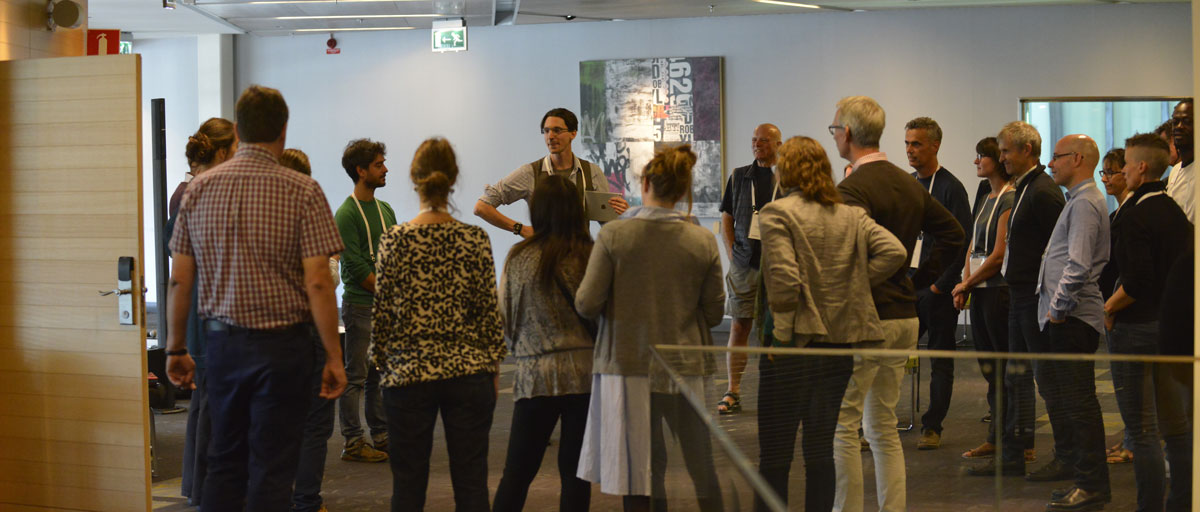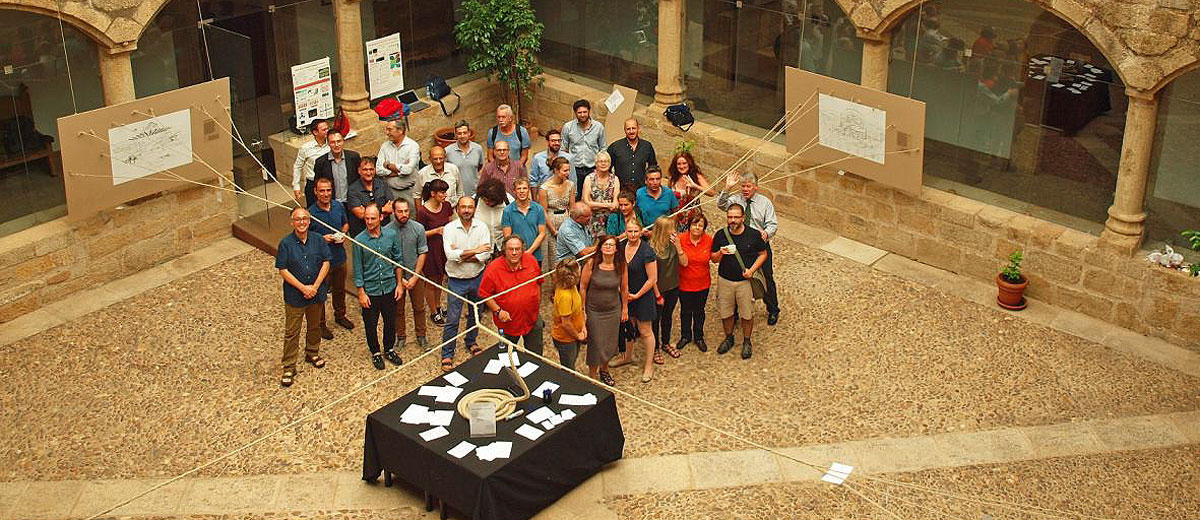Science and art
The sound of co-production
.jpg)
The farming landscape of Southern Öland is a UNESCO World Heritage site. Photo: RBP Media via Canva.
Centre researcher Carolin Seiferth’s work will be featured in the Baltic Sea Festival – as a piece of music
- In a few months, Carolin Seiferth will stand on a concert stage to present her research as a piece of music
- Seiferth is one of nine researchers in the Baltic Sea Festival Science Lab and was matched with a composer
- Together, they are now co-producing a piece of music that can capture the essence of Carolin Seiferth’s research
SCIENCE MEETS MUSIC: How does it sound when knowledge is co-produced? Is it a melodic process? A crescendo? Or is it a confusing up and down of tunes? At least, there should be some harmonies, right?
Well, soon, we will be able to find out! In her PhD, Carolin Seiferth focuses on addressing water scarcity on Öland through knowledge co-production. And in a few months, she will stand on a concert stage to present her research as a piece of music.
Co-producing music
As part of the Baltic Sea Festival, which will take place in Stockholm from 24 August to 2 September 2023, she will perform a 15-minute piece of music together with musicians from the Swedish Radio Symphony Orchestra.
We want to play with the idea of having a dialogue on stage between different instruments, the musicians and me, and us on stage and the audience.
Centre researcher Carolin Seiferth
The organisers of the festival wanted to see what happens when you bring young composers and young researchers together and initiated the Baltic Sea Festival Science Lab. Seiferth is one of nine researchers in the program and was matched with a young composer from Finland, Sampo Kasurinen, at the beginning of 2023.
Together, they are now co-producing a piece of music that can capture the essence of Carolin Seiferth’s research.
“It will be a story about Öland and water scarcity. Since my research is so much about dialogue, we want to play with the idea of having a dialogue on stage between different instruments, the musicians and me, and us on stage and the audience,” says Carolin Seiferth.
The topic for the piece is “sense of place”, which resonates well with Seiferth’s research.
Co-producing knowledge
Seiferth is working on knowledge co-production on the Swedish island of Öland. Over the past years, Öland has experienced severe issues such as droughts and water scarcity. The island is a popular tourist destination during summer. Many people travel to Öland to visit Södra Öland’s living farming landscape – a UNESCO World Heritage site since 2000. But the coexistence of farming and tourism is not easy as climate change puts additional pressure on already scarce water resources.
Music and art can communicate issues such as climate change differently and raise awareness on an emotional level.
Centre researcher Carolin Seiferth
In her work, Seiferth aims to bring together different groups of actors with interests in water issues on Öland. Together, she hopes, they can create a better understanding of Öland as a complex social-ecological system and work towards the implementation of novel solutions to address the island’s water problem.
Using music to convey the challenges and opportunities of adapting to new realities was an obvious choice for Carolin Seiferth.
“Music and art can communicate issues such as climate change differently and raise awareness on an emotional level. One of my aims with the research on Öland is to communicate co-produced insights through different channels, which are useful for our participating actors but others as well,” says Carolin Seiferth.
She continues:
“Also, it’s really cool to be part of the Baltic Sea Festival. Together with a director, composers, and musicians, we cannot only bring the idea behind co-production to life – but also on stage.”
Carolin Seiferth investigates the role of knowledge co-creation in fostering transformative capacity towards landscape-level climate action









